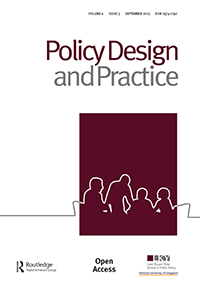基于区块链的去中心化自治组织的治理影响:实证分析
IF 2.6
Q1 PUBLIC ADMINISTRATION
引用次数: 1
摘要
基于区块链的去中心化自治组织(dao)的迅速崛起为政策制定者和决策者提供了自动执行决策和流程的新机会,这些决策和流程有助于提高透明度、问责制、参与和信任。然而,许多dao的生命周期是有限的。很少有经验证据表明治理要素对dao生存能力的影响。本文使用220个链上治理的dao,分析了治理元素(问责制、决策/投票和激励)如何影响dao的长期生存能力。研究结果表明,不带加权决策权和激励机制的dao比带加权决策权和激励机制的dao更具可行性。这表明,财务和类似于股票的DAO治理元素不会或甚至可能对DAO的长期生存能力产生负面影响。此外,我们发现投票权分布对dao的生存能力有统计上显著的影响。我们进一步提出了一个初步的理论,将治理元素与dao的长期可行性联系起来。这些见解将有助于决策者设计更可行的dao。未来的研究应该调查DAO目标、所选择的部署基础设施和用户类型如何影响DAO的长期生存能力。本文章由计算机程序翻译,如有差异,请以英文原文为准。
Governance impacts of blockchain-based decentralized autonomous organizations: an empirical analysis
The rapid rise in blockchain-based Decentralized Autonomous Organizations (DAOs) offers policy-makers and decision-makers new opportunities to automatically execute decisions and processes that help enhance transparency, accountability, participation and trust. Yet, many DAOs have a limited lifespan. There is little empirical evidence of the effect of governance elements on the viability of DAOs. Using 220 on-chain governed DAOs, this paper analyses how governance elements (accountability, decision/voting, and incentives) influence the viability of DAOs in the long-term. The findings show that DAOs without weighted decision-making and without incentive structures are more viable than those with weighted decision power and incentive mechanisms. This suggests that financial and share-like DAO governance elements do not or may even negatively contribute to the long-term viability of DAOs. Also, voting power distribution is found to have a statistically significant influence on DAOs’ viability. We further propose a preliminary theory that relates governance elements to the long-term viability of DAOs. These insights will help policy-makers in designing more viable DAOs. Future research should investigate how DAO objectives, the chosen deployment infrastructure and the type of users can impact the long-term viability of DAOs.
求助全文
通过发布文献求助,成功后即可免费获取论文全文。
去求助
来源期刊

Policy Design and Practice
PUBLIC ADMINISTRATION-
CiteScore
10.30
自引率
4.30%
发文量
19
审稿时长
13 weeks
期刊介绍:
 求助内容:
求助内容: 应助结果提醒方式:
应助结果提醒方式:


